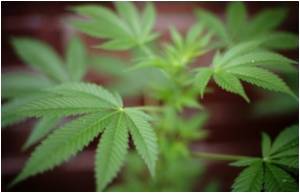The relaxation of marijuana laws in Colorado has caused a significant spike in the number of young children treated for accidentally eating marijuana-laced cookies and more.

The study, published Monday in the JAMA Pediatrics, compared the number of young children treated at the Children's Hospital Colorado emergency department for ingesting marijuana before and after the modification of Colorado's drug laws beginning in 2009.
A total of 1,378 patients under age 12 were evaluated for unintentional ingestions – 790 before Sept. 30, 2009 and 588 after Oct. 1, 2009. The number of children treated for exposure to marijuana before Sept. 30 was zero. The number from Oct. 1 on was 14 with eight of those coming directly from consuming marijuana food products.
Wang, a fellow at the Rocky Mountain Poison & Drug Center, said today's marijuana can be much stronger, and these products can contain higher concentrations of THC, the active ingredient in the drug. Some marijuana infused candy bars, for example, contain 300 milligrams of THC. Children who ingested the drug exhibited symptoms that included respiratory problems, extreme sleepiness, difficulty in walking and lethargy. Many underwent a battery of expensive tests to diagnose their problem because the history of exposure was not given, or medical professionals were not familiar with marijuana causing these symptoms.
"Before the marijuana boom these kinds of edibles were not mass-produced and the amount of THC ingested was somewhat limited, but now we are seeing much higher strength marijuana," Wang said. "The key to this is prevention through child resistant packaging."
With that in mind, Wang and Michael Kosnett, MD, MPH, a medical toxicologist and associate clinical professor at the University of Colorado School of Medicine, recently testified before a state advisory panel. According to Kosnett, they persuaded the panel to recommend child resistant packaging for marijuana edibles.
Child resistant packaging, Kosnett said, began with baby aspirin in the 1940s and in several studies has been associated with a 40 to 95 percent decline in pediatric poisonings from oral medications and hazardous household chemicals.
So far, no other state has developed similar packaging laws, including Washington which legalized recreational marijuana last year, Kosnett said.
"I believe the experience here in Colorado and the appropriate response by the Colorado Legislature will serve as an example to the rest of the country," he said.
Wang agreed.
"As more states move to legalize marijuana this problem is only going to increase," said Wang. "Now is the time to be proactive and intervene."
Source-Eurekalert
 MEDINDIA
MEDINDIA




 Email
Email






